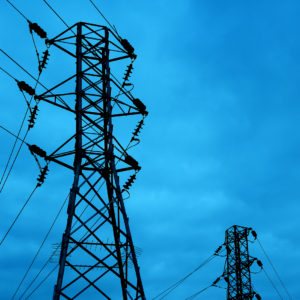Across the nation, there is a never-ending drumbeat to entice lawmakers, the media, and the general public into supporting policies that create competition for local electric companies. Known as deregulation, this policy allows third-party retailers to sell individuals and businesses their electricity.
Supporters of deregulation portray “competition” as good for consumers but, this couldn’t be further from the truth. In reality, these third-party retailers are often shady companies that rip off unsuspecting customers with promises of lower electric bills that actually go up over time; in other words, a bait-and-switch.
Recent studies in favor of third-party retailers have used all kinds of tricks and statistics in attempts to prove the customers in deregulated states benefit. An analysis of a recent study by the Pacific Research Institute found that “competition in power markets has been a boon for consumers” and that their rates have been “steadily declining or flat over the last five years.” That is a nice statistic, but also misleading.
For a more realistic understanding of competitive supply, consider a recent report by The Wall Street Journal which performed an analysis of U.S. Energy Information Administration data: “U.S. consumers who signed up with retail energy companies that emerged from deregulation paid $19.2 billion more than they would have if they’d stuck with incumbent utilities from 2010 through 2019.” The Journal added that in nearly every state where third-party suppliers operate: “they have charged more than their incumbent utilities in each of the five years from 2015 through 2019.”
Consider the other states which embraced competitive supply.
In Connecticut, about 25,000 people in the state get their power from competitive suppliers. But according to an analysis by Connecticut’s Office of the Consumer Counsel, over the past five years, ratepayers using third-party suppliers have spent over $274 million more on power than if they had stuck with the local energy company for their electricity.
Worse still, companies offering competition to the local electric companies often use “illegal and deceptive” sales tactics to take advantage of the least sophisticated customers. This is why John Erlingheuser, advocacy director of the AARP in Connecticut, recently penned an op-ed opposing competitive supply. He spoke out against a tactic that competitive suppliers use to cheat people called “auto-renew.” This is the bait-and-switch I mentioned before. Sign up for a good deal, but get “auto-renewed” into a contract that over time locks customers into outrageously high rates.
Or consider Massachusetts, where, since 1997, customers have paid $426 million dollars more for their electricity, than if they had stuck with their local power company.
This is why the attorney general of Massachusetts and representatives from the governor’s office recently testified in the state legislature that it is time to admit deregulation was a mistake and end the competitive electric supply industry in the Bay State.
As Attorney General Maureen Healey told the Committee, “I know it is a big deal for us to call for the banning of an industry. I don’t make that call lightly, but I make that call based on the documented data, as well as the anecdotes, but more importantly the data that we have studied that show why this industry is harming our residents.”
Because competitive suppliers have been ripping off low-income people for years, Healey’s office recently issued a report that found “the annual consumer loss for low-income participants is $241, which is 24 percent higher than the annual consumer loss of $194 for non-low-income participants,” assuming both incomes groups use an average of 600 kWh per month. Low-income ratepayers are clearly bearing the brunt of these scams.
In fact, Parris Glendenning, the former governor of Maryland, has lamented publicly about how competitive supply salespeople would stand outside welfare offices in Baltimore city, trying to scam people to sign up for their offers. Of course, both the person who signs up and the taxpayer who picks up the tab for their power bill are both victims.
Ultimately, clever researchers can use data to sell any concept they want including the benefits of deregulation. But in the case of competitive electric supply, all that is being offered to residential customers is higher electric bills.

